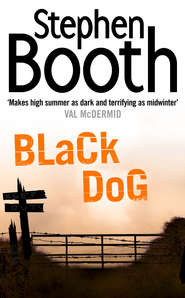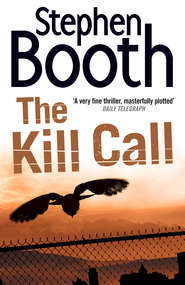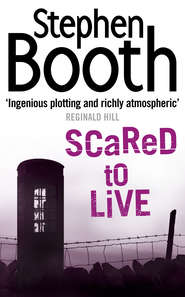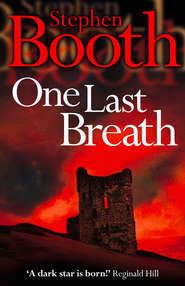По всем вопросам обращайтесь на: info@litportal.ru
(©) 2003-2024.
✖
Dancing With the Virgins
Автор
Год написания книги
2019
Настройки чтения
Размер шрифта
Высота строк
Поля
Maggie took a moment to recover her composure. ‘Is all that necessary?’
‘Maggie, we’re looking for a killer now. And you’re the only person who can identify him.’
‘I won’t go away. I’m staying here.’
‘But the other precautions …’ said Fry.
‘All right. But there’s one condition.’
‘Yes?’
‘If you’re going to visit me, do not feel sorry for me. I won’t talk to anyone who shows even the slightest sign of feeling sorry for me. Do you understand?’
‘Of course.’
Diane Fry was glad when Maggie Crew turned away. Since she had met Maggie at the door of her apartment, it had taken her several minutes to settle down, to recover from the initial shock. The sight of her had made Fry’s stomach muscles clench with vicarious pain as she tried to control her expression. But this woman must be used to such reactions by now.
Maggie Crew’s face would never be the same again. The knife had sliced her apart. No plastic surgery could ever completely hide the long, ragged scar that mutilated her cheekbone, splitting her face into two halves like a zip, its raised lips still red and angry, the flesh stretched painfully tight. No surgeon would ever entirely smooth out the ridges of shredded and bruised skin that puckered the corner of her right eye, pulling down her bottom lid to expose the pink veins, and twisting the whole side of her face into a leer.
But there was more even than that. There was the psychological damage that had been done to Maggie Crew. Even to Diane Fry the damage was obvious, though she had never met the woman before. Maggie was a partner in a firm of solicitors in Matlock. She was a successful professional woman, used to feeling self-confident and sure of her own worth. But now she had lost that confidence; her image of herself had been ravaged, slashed to pieces by the knife that had torn her face.
Fry knew that the attack on Maggie had happened six weeks ago. As far as they could ascertain, she had been attacked somewhere near the Cat Stones, the line of rocks below the Hammond Tower, not half a mile from where Jenny Weston’s body had been found. Maggie had been the lucky one. She had managed to stagger halfway off the moor before she collapsed from shock and loss of blood in the shelter of a wall, where she had been found by a farmer’s wife next morning. The doctors said Maggie had been lucky, in that the knife had narrowly missed removing an eye. Fry hoped that nobody had tried telling Maggie herself that she was lucky.
Now Maggie was recovering at home. And that meant she had been sitting here, in this sparse room, hiding from the light.
‘I suppose I should be frightened,’ said Maggie.
‘We’re just taking precautions. No need to be frightened.’
‘It would make a change – a change from finding people are frightened of me. They don’t know how to react, most of them. They don’t know what to say. They don’t want to talk about my face. Do you want to talk about it? About what my injury means to me.’
Fry shrugged. ‘Not particularly.’
Maggie looked surprised. Disappointed?
‘They say plastic surgery might help. But not yet. The injury is too recent.’
‘Yes, it takes time.’
‘Oh, the body heals itself to a certain extent, in time. The blood clots, the wounds close over, fresh skin grows. They can do wonders with surgery, they keep telling me. But it’s never quite the same, is it? You can’t rebuild the original tissue, and your body remembers the injury. You’re always marked in some way.’
The file said that Maggie Crew had received the appropriate counselling. She had gone through all the consultations with a psychiatrist. She had been encouraged to write down her feelings, to talk to Victim Support. The police had treated her with kid gloves for a time. But at the end of the day, they weren’t getting what they wanted. Maggie Crew knew far more than she had told them. She had seen her assailant and survived. He was the same man, they now suspected, who had killed Jenny Weston. It was at this moment, more than ever, that they needed the information locked in Maggie’s head.
Fry wondered how secure the apartment was. It occupied part of the second floor of Derwent Court, a converted spa hotel, a relic of the town’s Victorian past as a health resort. The building had stood derelict for years before an influx of county council office workers had boosted the demand for housing in Matlock. Now comfortably-off residents lived at the end of its marble corridors and stared all day at an expensive view over the Derwent Valley, counting the cable cars as they ferried tourists to the Heights of Abraham.
At least there was a concierge in the lobby downstairs. She would have to have a word with him before she left – he would be able to keep an extra careful eye out for visitors to Derwent Court.
She stared out of the window into the darkness. The quarry-blasted hillside stood out white and stark on the skyline to the south. No attempt had been made to repair or disguise the damage that had been done to the landscape by the mineral companies. The scars had been left as a symbolic reminder, a legacy of the past. And perhaps as a warning too. A warning of what might easily happen again one day – if no one did anything to prevent it.
‘Yes, some things take time,’ said Maggie. ‘Other things take a miracle.’
Ben Cooper had already formed a clear idea in his mind of what Jenny Weston had been like. There had been no shortage of details there, for once. The entry in the log at the cycle hire centre had given them the basics. Not only that, but the cycle hire manager knew which car was hers. Once they had got access to it, they had found her handbag in the glove compartment, with her diary and all the information they could possibly want, written on the front page in her own hand. It listed not only the name, address and phone number of her next of kin, but also Jenny’s date of birth, her National Insurance number, the numbers of her bank account and her mobile phone, the names of her doctor, dentist and vet, her religion, the address of her insurance company, her National Trust membership number, her height and weight, and her shoe size. And her blood group.
And then her father, Eric Weston, had lost no time arriving from his home at Alfreton as soon as they contacted him. Cooper had arrived back at Partridge Cross from Ringham Edge Farm just in time to sit in on the interview with DCI Tailby. Mr Weston had been all too willing to tell them about his daughter. He recited the details eagerly, as if he needed to remind himself, too, of who Jenny was. Of who she had been.
Jenny had been married at twenty-one. Her husband, Martin Stafford, had not been liked by her parents. Police officers heard that one often, of course. Very few parents thought the men their daughters chose were good enough. But in this case, Stafford had lasted about three and a half years before his violent nature became obvious. Jenny had stayed with him another two years before they had finally parted.
The story was a familiar one. A woman abused, yet reluctant to believe that there wasn’t something worth preserving in her marriage; convinced, somehow, that her man did what he did because he loved her. It seemed incredible to Cooper that some women continued to expect far too much of marriage. Their beliefs died hard.
Mr Weston was deputy head teacher of one of the Eden Valley secondary schools. He had that rather weary and worn look that identified middle-aged teachers. His hair was mostly on the back of his head, curly and untidy, and not trimmed on his neck for a long time. He wore a grey suit, but there were shiny patches on the trousers and an indefinable scent that reminded Cooper of his own school days. Chalk and musty text books, school dinners and badly washed schoolboys.
It seemed that Mr Weston was inclined to blame Martin Stafford for Jenny’s death. This was despite the fact that, as far as he was aware, the two of them hadn’t seen each other for three years.
‘It would be just like him to have got in touch again, and for Jenny to agree to meet him, without telling us,’ he said.
‘Do you know where Mr Stafford lives now?’ asked Tailby.
‘No, I don’t. I think Jenny knew. But she never told us that, either.’
‘Why?’
‘She thought we would interfere. We were so worried about her. She never seemed to see sense where that man was concerned.’
‘There are no children from the marriage?’
‘No.’
‘That’s fortunate, I suppose?’
‘I’m not sure about that,’ said Mr Weston.
Jenny had met Stafford while she was a student at the University of Derby. He had been a journalist then, working at the city’s Evening Telegraph – a senior reporter with a flair for off-beat features, or so he had said. According to Mr Weston, Stafford had cultivated a knowing, cynical image, had drunk too much and had cared about little except himself and his career.
‘Jenny was studying to be a radiologist,’ he said. ‘She was already in the third year of her course, and doing really well. She could have had a good career ahead of her, if it hadn’t been for Stafford. She met him in a pub in Derby, and he made a beeline for her. She was an attractive girl. And far too trusting.’
‘What happened?’
‘She became completely besotted with him. She wouldn’t listen to us when we told her to put her studies first, that her own career was more important. In the end, she gave up her studies to marry Stafford when he asked her to. She said she wanted to start a family with him. We had to accept it.’
‘But you said there were no children?’
‘No children. Only divorce.’
Even the divorce had come only after a series of short-lived reconciliations which were, according to Jenny’s father, simply Martin Stafford’s demonstrations of his ability to manipulate their daughter. He had some inexplicable power over her, and he was reluctant to give it up. The situation dragged on for a long time, painfully and unsatisfactorily.
‘When it was all over, Jenny managed to get a job with Global Assurance in Derby,’ said Mr Weston. ‘But then she had to move to their new call centre when it was built in Sheffield. We didn’t like it. It meant she was away from us, away from her family. She went to live alone in that little terraced house off the Ecclesall Road. It was too far away. All she had with her was her blessed cat, not even a dog. Her mother was very upset. She worried about what might happen to her. We both did.’
‘You were worried that Mr Stafford might try to get back in touch with her?’











